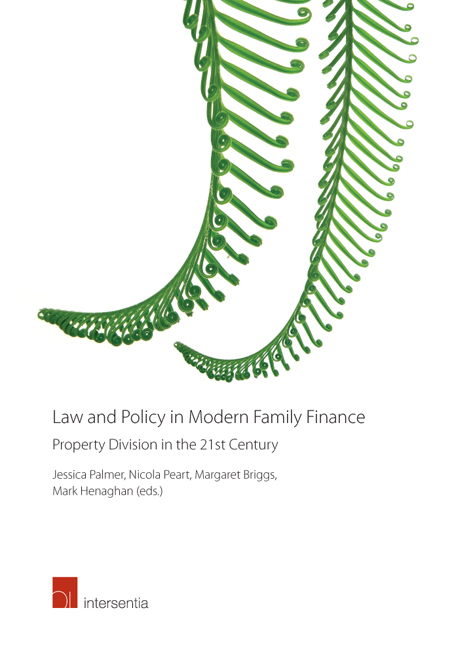Book contents
- Frontmatter
- Foreword
- Acknowledgements
- Contents
- Table of Cases
- List of Contributors
- Chapter 1 Introduction
- PART I WHO SHOULD BE COVERED BY A PROPERTY SHARING REGIME?
- PART II WHAT PROPERTY SHOULD BE COVERED BY A PROPERTY SHARING REGIME?
- PART III HOW SHOULD PROPERTY BE SHARED AT THE END OF A RELATIONSHIP?
- Chapter 11 Should the Regime be Discretionary or Rules-Based?
- Chapter 12 Sharing Family Finances at the End of a Relationship
- Chapter 13 Should a Property Sharing Regime be Mandatory or Optional?
- Chapter 14 Contracting Out of the Default Relationship Property Regime – Comparative Observations
- Chapter 15 Maintenance – Time for a Clean Break?
- Index
Chapter 11 - Should the Regime be Discretionary or Rules-Based?
from PART III - HOW SHOULD PROPERTY BE SHARED AT THE END OF A RELATIONSHIP?
Published online by Cambridge University Press: 29 September 2018
- Frontmatter
- Foreword
- Acknowledgements
- Contents
- Table of Cases
- List of Contributors
- Chapter 1 Introduction
- PART I WHO SHOULD BE COVERED BY A PROPERTY SHARING REGIME?
- PART II WHAT PROPERTY SHOULD BE COVERED BY A PROPERTY SHARING REGIME?
- PART III HOW SHOULD PROPERTY BE SHARED AT THE END OF A RELATIONSHIP?
- Chapter 11 Should the Regime be Discretionary or Rules-Based?
- Chapter 12 Sharing Family Finances at the End of a Relationship
- Chapter 13 Should a Property Sharing Regime be Mandatory or Optional?
- Chapter 14 Contracting Out of the Default Relationship Property Regime – Comparative Observations
- Chapter 15 Maintenance – Time for a Clean Break?
- Index
Summary
’ The history of law is many things. But one of them is the story of an unremitting struggle between rules and discretion. The tension between these two approaches to legal problems continues to pervade and perplex the law today. Perhaps nowhere is that tension more pronounced and more troubling than in family law.’
‘ Most judges who are murdered by dissatisfied customers are killed by irate domestic litigants, not by criminals. The reason is simple: in other litigation, fewer emotional issues are involved; more important, the judge has less discretion.’
INTRODUCTION
As the opening quotations suggest, the topic explored in this chapter is neither easy nor, perhaps, for our judges even safe! I first reframe the question and clear some ground.
REFRAMING THE QUESTION
In reality, we are not confronted by a stark choice: discretion or rules. The question is better framed as the (elusive) search for the right mix of rules and discretion.
However, even that framing obscures the fact that rules and discretion are not the only juristic tools available, and that both ‘rules‘ and ‘discretion‘ come in varying degrees of ‘ruleness‘ and ‘discretionness‘. As Cass Sunstein and others have catalogued, we have at our disposal an array of legal resources including untrammeled discretion, rules, rules with excuses, presumptions, factors, standards, guidelines, principles, and analogies. To that list we might add, or highlight, formulae as a particular type of – quantitatively expressed – rule. So there is a continuum of more and less rule-like modes in which a legal proposition might be expressed; and there are weaker and stronger forms of discretion, more or less trammeled by another of the tools in the box.
Lastly, ‘the regime‘ that we are examining (or might wish to create) has (or will probably have) more than one component. The current legal framework for the division of capital assets on relationship breakdown in New Zealand itself comprises more than one mode of legal norm: a rule of equal sharing of defined property, subject to exceptions cabined by jurisdictional limits, at least one of which (Property (Relationships) Act 1976 (NZ) (‘ PRA ‘), section 15), once triggered, ultimately requires the exercise of judicial discretion to determine the extent of departure from equal shares.
- Type
- Chapter
- Information
- Law and Policy in Modern Family FinanceProperty Division in the 21st Century, pp. 261 - 292Publisher: IntersentiaPrint publication year: 2017
- 1
- Cited by



